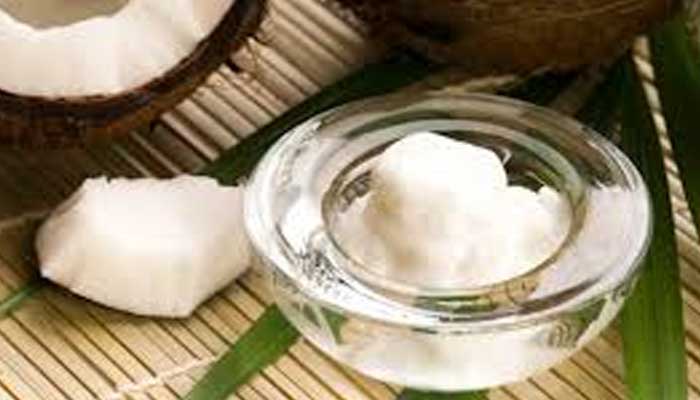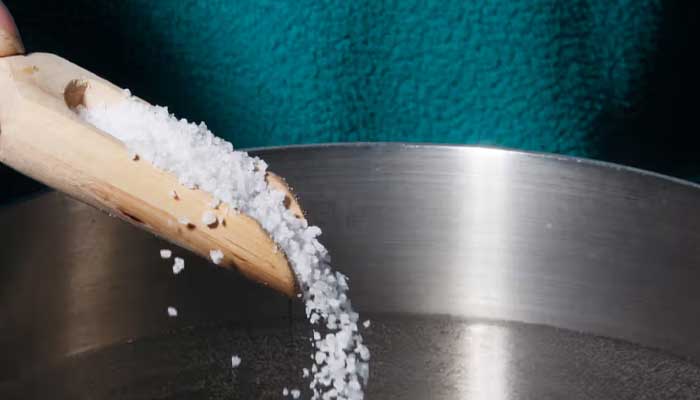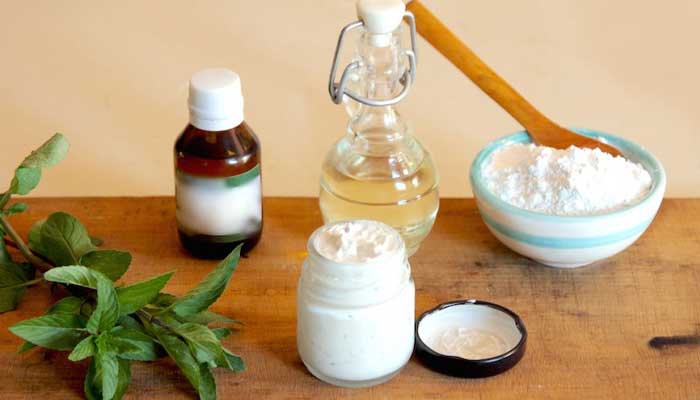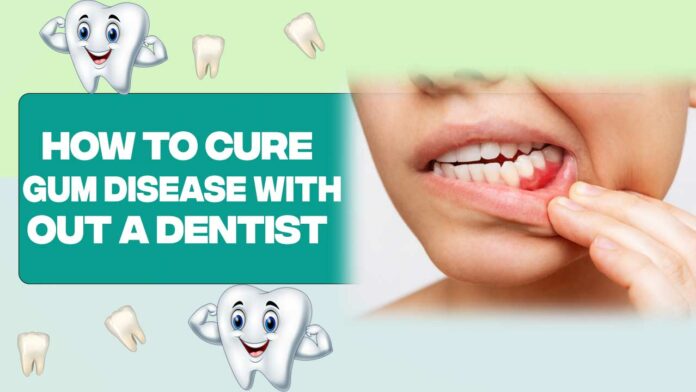How to Cure Gum Disease Without a Dentist
Gum disease, also known as periodontal disease, is a common oral health issue that affects millions of people worldwide. It’s characterized by inflammation of the gums, which can progress to damage the soft tissue and bone that supports the teeth. While seeking professional dental care is crucial for managing gum disease, there are also various ways to alleviate its symptoms and promote healing at home, including techniques on How to Cure Gum Disease Without a Dentist.
Understanding the Causes of Gum Disease
Poor Oral Hygiene
One of the primary causes of gum disease is inadequate oral hygiene. When plaque, a sticky film of bacteria, accumulates on the teeth and along the gumline, it can lead to gum inflammation and infection if not removed through regular brushing and flossing.
Smoking and Tobacco Use
Smoking and the use of other tobacco products can significantly increase the risk of developing gum disease. Tobacco use weakens the immune system, making it harder for the body to fight off infections, including those affecting the gums.
Genetics and Family History
Genetics can also play a role in predisposing individuals to gum disease. Those with a family history of periodontal problems may be more susceptible to developing the condition themselves.
Signs and Symptoms of Gum Disease
Recognizing the signs and symptoms of gum disease is essential for early intervention and treatment. Common indicators include.
Bleeding Gums
Healthy gums should not bleed during brushing or flossing. Bleeding gums may indicate the presence of inflammation or infection and should be addressed promptly.
Swollen or Tender Gums
Inflamed gums that appear red, swollen, or tender to the touch are common symptoms of gum disease. Gums may also pull away from the teeth, creating pockets where bacteria can thrive.
Persistent Bad Breath
Halitosis, or persistent bad breath, can be a sign of gum disease. The bacteria that cause gum infections release foul-smelling byproducts, leading to unpleasant breath odor.
Importance of Treating Gum Disease
Ignoring gum disease can have serious consequences for oral and overall health. In addition to causing tooth loss, untreated gum disease has been linked to systemic health issues such as heart disease, diabetes, and respiratory problems.
Natural Remedies for Treating Gum Disease
While professional dental treatment is recommended for advanced cases of gum disease, several natural remedies can help alleviate symptoms and promote gum health at home.
Oil Pulling

Oil pulling involves swishing a tablespoon of coconut, sesame, or sunflower oil in the mouth for 15-20 minutes before spitting it out. This ancient Ayurvedic practice can help reduce plaque buildup and improve gum health.
Saltwater Rinse

Gargling with a warm saltwater solution can help reduce inflammation and kill bacteria in the mouth. Mix half a teaspoon of salt in a glass of warm water and swish it around for 30 seconds before spitting it out.
Herbal Mouthwashes

Certain herbs, such as sage, peppermint, and tea tree oil, possess antimicrobial properties that can help fight gum disease-causing bacteria. Look for natural mouthwashes containing these ingredients or make your own at home.
How to Make Herbal Mouthwash at Home
1. Peppermint Mouthwash Recipe
Ingredients:
1 cup distilled water
1 tablespoon dried peppermint leaves
1 teaspoon baking soda
1 teaspoon xylitol (optional, for sweetness)
Instructions:
Boil the water and steep the peppermint leaves for 20 minutes.
Strain the mixture and let it cool.
Add baking soda and xylitol, if desired, and stir until dissolved.
Pour the mouthwash into a bottle and store it in the refrigerator for up to two weeks.
Dietary Changes for Gum Health
Nutrition plays a vital role in supporting overall oral health. Incorporating the following foods into your diet can help promote gum health.
Vitamin C-Rich Foods
Vitamin C is essential for collagen production, which is crucial for maintaining healthy gums. Include plenty of citrus fruits, strawberries, bell peppers, and leafy greens in your diet to ensure an adequate intake of this nutrient.
Probiotics
Additionally, probiotics found in yogurt, kefir, and fermented foods can help restore balance to the oral microbiome and reduce the risk of gum disease. Furthermore, it is important to look for probiotic-rich foods containing Lactobacillus reuteri and Lactobacillus acidophilus strains.
Omega-3 Fatty Acids
Omega-3 fatty acids have anti-inflammatory properties that can help reduce gum inflammation and promote healing. Add fatty fish like salmon, mackerel, and sardines to your diet or consider taking fish oil supplements.
Lifestyle Changes to Improve Gum Health
In addition to dietary modifications, certain lifestyle changes can support gum health and prevent the progression of gum disease.
Quit Smoking
If you smoke or use tobacco products, quitting is one of the most important steps you can take to improve your gum health. Smoking not only weakens the immune system but also restricts blood flow to the gums, making it harder for them to heal.
Stress Management
Chronic stress can weaken the immune system and exacerbate inflammation throughout the body, including the gums. Practice stress-reduction techniques such as deep breathing, meditation, and yoga to support gum health.
Regular Dental Checkups
Even if you’re taking proactive steps to care for your gums at home, regular dental checkups are essential for detecting and treating gum disease early. Your dentist can provide professional cleanings and recommend personalized treatment options based on your oral health needs.
Home Care Practices for Gum Disease Prevention
Maintaining a consistent oral hygiene routine is critical for preventing gum disease and maintaining optimal oral health. Follow these home care practices to keep your gums healthy.
Proper Brushing Technique
Brush your teeth twice a day using fluoride toothpaste and a soft-bristled toothbrush. Use gentle, circular motions to clean the front, back, and chewing surfaces of each tooth, paying special attention to the gumline.
Flossing Daily
Flossing removes plaque and food particles from between the teeth and along the gumline, where a toothbrush can’t reach. Be sure to floss gently to avoid injuring the gums and use a clean section of floss for each tooth.
Using Antimicrobial Mouthwash
Rinsing with an antimicrobial mouthwash can help kill bacteria and reduce plaque buildup in the mouth. Choose a mouthwash containing ingredients like chlorhexidine, essential oils, or fluoride for maximum effectiveness.
Supplements for Gum Health
In addition to a healthy diet and proper oral hygiene, certain supplements may help support gum health and prevent gum disease:
Coenzyme Q10
Coenzyme Q10, also known as CoQ10, is an antioxidant that plays a key role in gum tissue repair and regeneration. Taking CoQ10 supplements may help reduce gum inflammation and support overall gum health.
Vitamin D
Vitamin D is essential for calcium absorption and bone health, including the bones that support the teeth. Low vitamin D levels have been associated with an increased risk of gum disease, so consider taking a vitamin D supplement if you’re deficient.
Zinc
Zinc is a trace mineral that plays a role in immune function and wound healing. Some research suggests that zinc supplementation may help reduce gum inflammation and promote gum tissue repair.
Professional Help for Severe Cases
While natural remedies and lifestyle modifications can be effective for managing mild to moderate cases of gum disease, severe or advanced cases may require professional intervention. Additionally, if home care measures fail to improve your gum health or if you experience severe symptoms such as loose teeth or abscesses, seek prompt treatment from a qualified dentist or periodontist.
However, some people may be interested in exploring alternative methods. One may inquire about “How to Cure Gum Disease Without a Dentist” to learn about potential non-traditional approaches. It’s important to approach such methods with caution and consult with a healthcare professional before attempting any treatments on your own.
Conclusion.
Additionally, taking proactive steps to care for your gums can help prevent gum disease and promote optimal oral health. Furthermore, by maintaining a consistent oral hygiene routine, making dietary and lifestyle changes, and seeking professional dental care when needed, you can protect your gums from infection and support long-term dental wellness.
FAQs (Frequently Asked Questions)
- Can gum disease be reversed naturally?
Yes, mild cases of gum disease can often be reversed with proper oral hygiene, dietary changes, and natural remedies.
2. How long does it take to cure gum disease without a dentist? – Tips on How to Cure Gum Disease Without a Dentist.
while there are steps you can take to improve gum health at home, treating gum disease without a dentist may not be as effective or safe. However, you can maintain good oral hygiene, use antimicrobial mouthwash, eat a balanced diet, quit smoking, stay hydrated, use a soft-bristled toothbrush, and consider natural remedies like oil pulling or aloe vera gel. These measures can help support gum health, but they should complement, not replace, professional dental care. If you suspect gum disease, it’s crucial to see a dentist for proper diagnosis and treatment.
3. Is it safe to treat gum disease without professional help?
While natural remedies and home care practices can be effective for managing mild cases of gum disease, it’s essential to seek professional dental care for severe or advanced cases to prevent complications and ensure proper treatment.
4. Can I prevent gum disease with proper oral hygiene alone?
While proper oral hygiene is crucial for preventing gum disease, it’s also essential to maintain a healthy diet, avoid tobacco use, and visit your dentist regularly for professional cleanings and checkups.
5. Are there any risks associated with natural remedies for gum disease?
Additionally, while natural remedies are generally safe when used as directed, some individuals may experience allergic reactions or adverse effects. Therefore, it’s essential to consult with a healthcare professional before trying any new treatment, especially if you have underlying health conditions or are taking medications.

